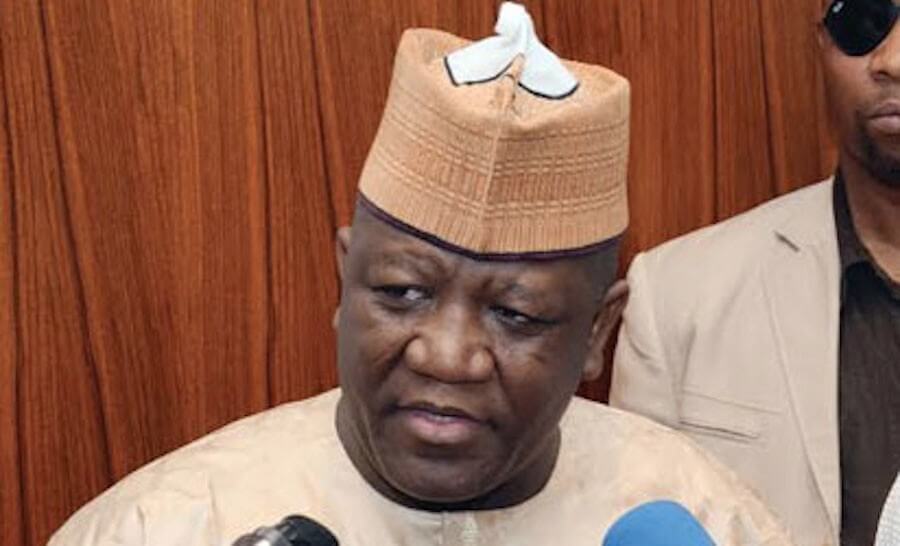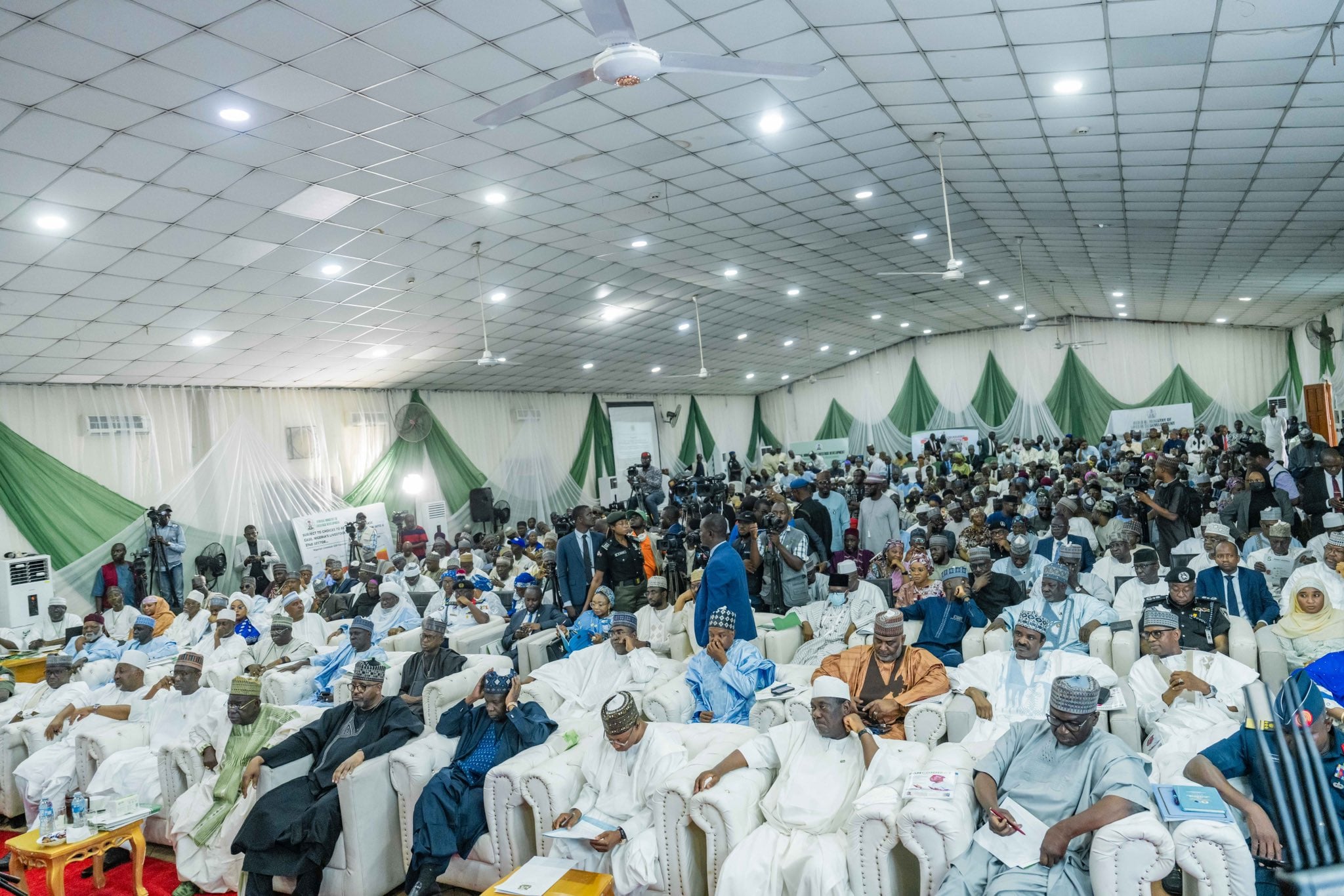
Some days after the World Health Organisation (WHO) tweaked the Health Workforce Support and Safeguard list, the United Kingdom has also revised its policy on recruitment of health workers from overseas.
The code of practice for the international recruitment of health and social care personnel in England, recently updated, has Nigeria returned to the red list countries, which means, “no active recruitment is permitted”.
In a related development in-country, there is already an outrage against the Federal Government’s plot to forcefully keep doctors in Nigeria through a new bill proposing a five-year pre-licensing practice for Nigeria-trained doctors.
Renowned practitioners and medical associations were at the weekend, unanimous that arm-twisting or “enslaving” healthcare professionals is not the solution to acute brain drain.
By the updated WHO’s workforce safeguard list, and now adopted by the UK government, Nigeria and the likes of Benin, Cameroun, Ghana, Senegal, Zimbabwe, and 47 others – mostly African countries – are now in the no recruitment list.
According to the UK Home Office, “If a government-to-government agreement is put in place between the UK and a partner country, it will restrict UK employers, contracting bodies, recruitment organisations, agencies and collaborations to the terms of the agreement. The country will be added to the amber list and recruitment can happen only on the terms of the agreement .
“Changes to the red and amber country list may be made on an ad hoc basis as government-to-government agreements are signed. All agreements will take WHO guidance on the development of bilateral agreements into account.
“It is recommended that employers, recruitment organisations, agencies, collaborations and contracting bodies check the red and amber country list for updates before any recruitment drive.”
However, the President, World Medical Association (WMA) and former President, Nigerian Medical Association (NMA), Dr Osahon Enabulele, yesterday, joined the list of medical professionals kicking against the Bill to mandate any Nigeria-trained medical or dental practitioner to practice in Nigeria for a minimum of five years before being granted full registration/license by the Medical and Dental Council of Nigeria (MDCN).
A bill seeking to mandate Nigerian-trained medical and dental practitioners to practice for a minimum of five years in the country, before being granted a full licence, on Thursday, last week, passed second reading at the House of Representatives.
Sponsored by Ganiyu Johnson, an All Progressives Congress (APC) lawmaker from Lagos, the bill seeks to amend the Medical and Dental Practitioners Act 2004, to address the brain drain in the Nigerian health sector. If passed into law, medical and dental practitioners trained in the country will have to practice for at least five years before they are granted a full licence.
Indeed, there has been concern in recent times over the relocation of many healthcare workers in Nigeria to foreign countries — a development that has retrograded the state of the country’s health sector.
In August 2022, the Nigerian Medical Association (NMA) said a total collapse of the health sector was imminent, if urgent steps were not taken to address the brain drain in the sector.
The association called for an emergency solution to the issue in the health sector, adding that with the trend of medical doctors leaving the country, there might be a need to hire doctors from foreign countries in the future. Enabulele told The Guardian yesterday: “As one who has engaged the issues of Nigeria’s health system, including the crisis of brain drain, for over two decades, I must state with the greatest respect to the sponsors of the Bill, that I really consider their proposition as not only outlandish, but totally retrogressive, unresearched, and very ill-formed.
“I am told that the sponsor of the Bill claimed that there are about 10,000 doctors practicing in Nigeria. This alone clearly shows the unresearched nature of the proposal. From the information available to me, as at December 30, 2022, there were 104, 327 medical and dental practitioners on the register of the Medical and Dental Council of Nigeria, with the number of practicing doctors put at 56, 829. So, where did he get the figure of 10, 000 from?”
Enabulele, who, last week, participated in the 5th Global Forum on Human Resources for Health organised by the WHO, in Geneva, Switzerland, said the Bill also showed a clear lack of understanding of the push and pull factors buoying the crisis of brain drain in Nigeria, and other parts of Africa – the region worst hit by the crisis.
The physician wondered how this proposition will solve the problem of brain drain, which is largely traceable to the indecent and disabling working conditions and infrastructure, insecurity, uncompetitive wages, unemployment and underemployment of medical and dental practitioners, amongst other known factors, most of which he has spoken about over the last two decades.
Enabulele added that the recently held 5th Global Forum on Human Resources for Health was in total agreement with this, and the need for a sincere approach to the resolution of these challenges.
“I am, therefore, shocked that rather than come up with purposive and progressive solutions on how to transparently and comprehensively address the push factors accelerating the crisis of brain drain in Nigeria, particularly through prioritised investments in the health system and the health workforce, the sponsors of the Bill sought to come up with a proposition whose remedy is likely to generate a worse ailment and crisis,” he said.
The physician further explained: “Furthermore, the Bill seeks to achieve its objective through an amendment of the Medical and Dental Practitioners’ Act. As is well known, a Bill seeking to repeal and re-enact this same Act was passed by the Senate in the year 2021 and awaiting concurrence by the same House of Representatives. With the time left for legislative business in the outgoing ninth National Assembly, one wonders how the sponsors hope to achieve their aim.”
Enabulele said while he is aware that there might be a public hearing on the Bill to allow for public consultations with stakeholders, it would have made a whole lot of sense if the sponsors had taken the pains to consult with stakeholders in the medical profession to derive an informed view on the real factors responsible for the crisis of brain drain.
He urged the sponsors of the Bill to reconsider their position and withdraw the Bill, as the cure it offers would be worse than the ailment it seeks to cure.
Also, President, Nigerian Association of Resident Doctors (NARD), Dr Emeka Innocent Orji, described the bill as anti-people, demanding that it should be withdrawn.
Orji told The Guardian that he accepts the fact that the Federal Government and the National Assembly have now come to the realisation that brain drain in the health sector has got to a dangerous dimension.
“They now agree with us that the situation is threatening medical practice. We have been raising this alarm over the years. The only problem with the solution the Reps member is proposing is going to worsen the situation. If they do not carry us along, they are going to make mistakes,” he said.
Orji added: “The bill is laughable. Most of the figures he quoted were wrong. So, what he is saying is that doctors should not function post-graduation. He wants to form a pool of doctors that will not be doing anything after graduation. It is actually enslavement.”
On the issue that the Federal Government is highly subsidising the training of doctors, Orji said: “The subsidy he is talking about does not make sense. You cannot do that comparison. There has not been any scientific method to know how this is; the training of doctors is subsidized, and to what extent?
“We are losing doctors and we are not replacing them. You see doctors roaming the streets because even though most Federal Health Institutions and Teaching Hospitals are in dire need of doctors, they are not employing because there is an embargo on employment.
“The bureaucracy will also not allow replacement of doctors that left after over six months. That is why you see one doctor doing the work of 30 doctors.”
The NARD President recalled that there was a brain drain committee set up by the Federal Ministry of Health (FMoH) that recommended one-for-one replacement. Orji said the committee met over three months ago and he is surprised that the report of the committee has not been implemented.
“We need to improve the remuneration, working environment, security and incentives. If you give a doctor a mortgage, you have tied him or her down. If you give him car loan, you have tied him or her down,” he said.
Orji said: “Some people want to cause trouble for this government before they leave. NARD is averse to such an anti-people bill, and it is unfortunate that an honourable member will be thinking about that. That is selfishness.
“Have they come up with bills to stop public officials from seeking medical services abroad at taxpayers’ expense? They will not do that because it is affecting them directly and instead of addressing the root causes of brain drain, they are going to the symptom, and that is totally unacceptable.
“We know that the Speaker of the House of Representatives is someone that reasons a lot and we intend to reach out to him, that bill needs to be withdrawn. It is causing a lot of agitation already all over the country, and nobody should be allowed to cause a crisis for this regime that is about to end.”
Professor of microbiology and immunology at the Department of Medical Microbiology and Immunology, Nile University of Nigeria, Abuja, Boaz Adegboro, told The Guardian: “Politicians are trying to legally persecute doctors because of their (politicians) failure to develop the country, particularly the health sector. Nigerian politicians have no excuses for not developing the country like Canada and Australia did.”
Also, a consultant virologist and pioneer Vice Chancellor of Redeemer’s University Ede, Osun State, Prof. Oyewale Tomori, has faulted the House of Representatives for passing a bill, which seeks to mandate medical graduates to render services within Nigeria for five years before being granted full license.
Tomori told journalists at the weekend that the Federal Government should create the enabling environment to motivate Nigerian-trained doctors, nurses and other health workers emigrating the country to work in Europe and other parts of the world to reconsider their choices.
Tomori, who is also a consultant to WHO, said if the bill is made a law, government officials should equally stop seeking medical services abroad.
Meanwhile, leading the debate on the bill during plenary, on Thursday, Johnson said the bill aims to “make quality health services available to Nigerians”. Johnson said it was only fair for medical doctors, who enjoyed taxpayer subsidies on their training, to give back to society.






